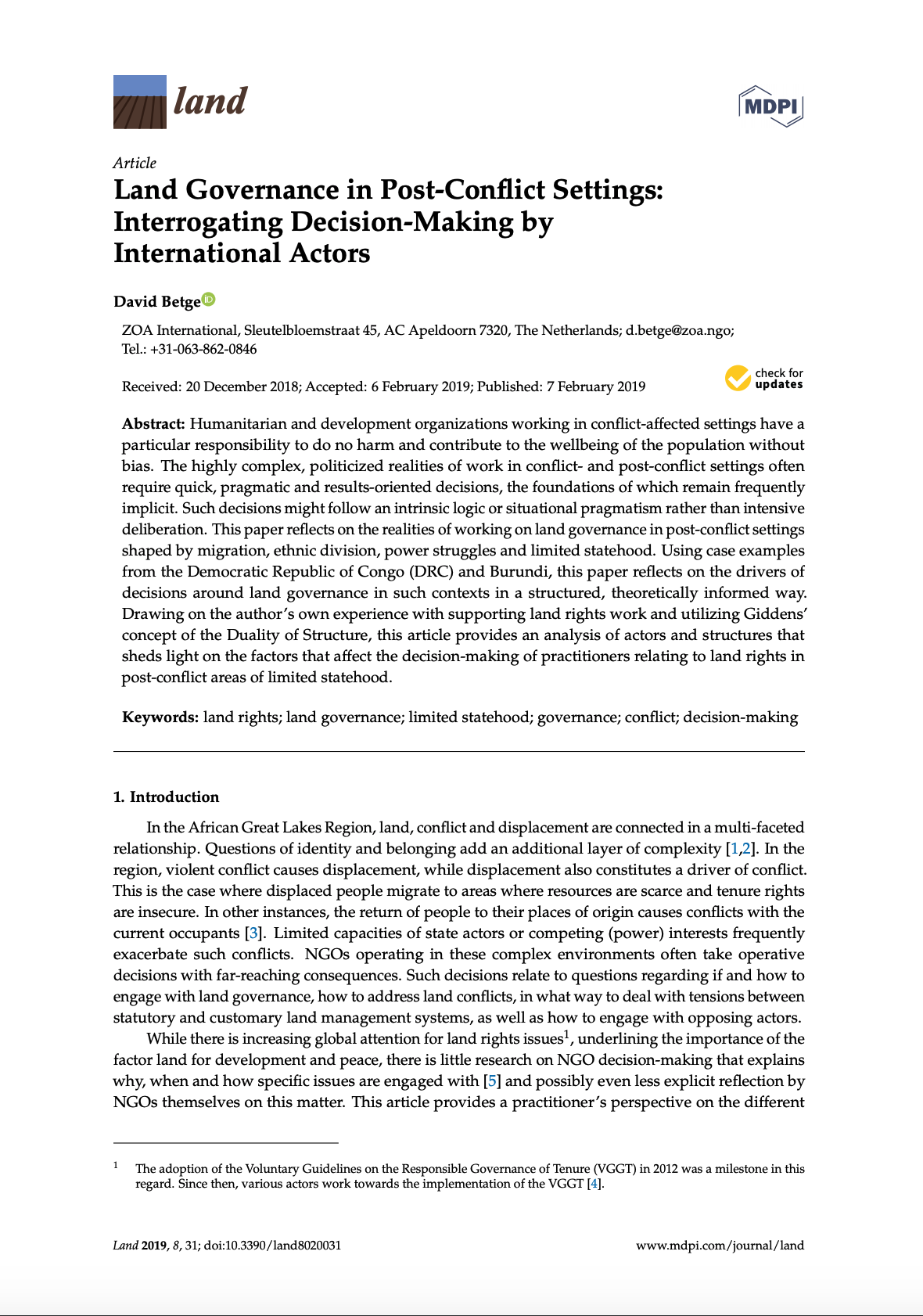Location
MDPI AG, a publisher of open-access scientific journals, was spun off from the Molecular Diversity Preservation International organization. It was formally registered by Shu-Kun Lin and Dietrich Rordorf in May 2010 in Basel, Switzerland, and maintains editorial offices in China, Spain and Serbia. MDPI relies primarily on article processing charges to cover the costs of editorial quality control and production of articles. Over 280 universities and institutes have joined the MDPI Institutional Open Access Program; authors from these organizations pay reduced article processing charges. MDPI is a member of the Committee on Publication Ethics, the International Association of Scientific, Technical, and Medical Publishers, and the Open Access Scholarly Publishers Association (OASPA).
Members:
Resources
Displaying 1251 - 1255 of 1524Land Governance in Post-Conflict Settings: Interrogating Decision-Making by International Actors
Humanitarian and development organizations working in conflict-affected settings have a particular responsibility to do no harm and contribute to the wellbeing of the population without bias. The highly complex, politicized realities of work in conflict- and post-conflict settings often require quick, pragmatic and results-oriented decisions, the foundations of which remain frequently implicit. Such decisions might follow an intrinsic logic or situational pragmatism rather than intensive deliberation.
What Affects Participation in the Farmland Rental Market in Rural China? Evidence from CHARLS
Land fragmentation and the small size of land parcels are still the major bottlenecks for agriculture sustainable development in rural China, and an efficient land rental market could consolidate land plots and realize agricultural management at a moderate scale. However, transaction cost is still the main obstacle of land transfer. It is, therefore, essential to reduce the excessive transaction costs in the process of transfer; the primary task is to identify the roots of transaction costs.
A New Approach to the Registration of Buildings towards 3D Land and Property Management in Slovakia
Slovakia faces a critical period in land and property management. The Land Registry still maintains its old 1990s information system and obsolete manual record system, whose structure and links of the real estate records and ownership titles are unable to meet the current requirements of companies in its graphical representation and visualization of data. Basically, it is a partially structured, digitalized and yet still analog system for recording land titles.
Towards a Valuation and Taxation Information Model for Chinese Rural Collective Construction Land
To promote rural revitalisation, China’s central government revised the land administration law to allow rural collective construction land (RCL) to be traded in the market and attract private and financial capitals into rural investment and development. However, the land value appreciation income of the market access is closely related to geographical location. Hence, the value appreciation of RCL is enormous in villages around cities and towns. By contrast, the land value appreciation of RCL is low in villages away from cities and towns.
The Evolution of Sustainable Development in Scotland—A Case Study of Community Right-to-Buy Law and Policy 2003–2018
Effective ownership, management and access to land are central for sustainable development and can impact significantly on the opportunities for local enterprise. In 1998, Scotland’s Land Reform Policy Group concluded that ‘Land reform is needed on the grounds of fairness and to secure the public good’ Consequently, Scotland has introduced various schemes that facilitate or compel the transfer of land from an existing landowner to a community body.






